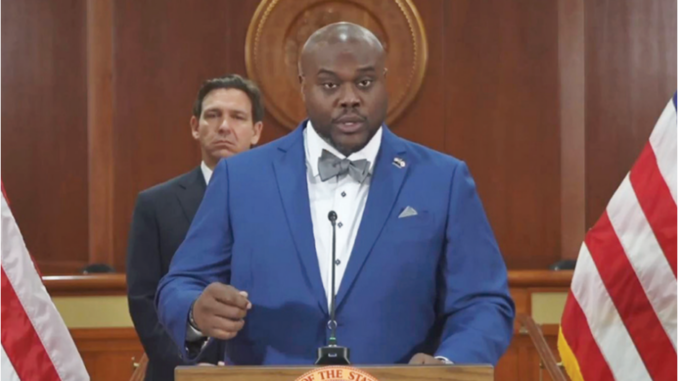
The leader of a church-run school in Orlando was called into a fourth-grade classroom where more than a dozen children were allegedly acting out, and spanked them. Orange-Osceola State Attorney Andrew Bain investigated his actions as possible child abuse but did not file charges.
When the decision was announced last month, it begged a question: Does Florida still allow corporal punishment in its schools?
In fact, the state is one of 18 that continue to permit the practice, although data show the number of incidents has declined each year over the last decade. Still, legislation to limit corporal punishment in public and charter schools is unlikely to move in the current session, underscoring the enduring nature of this controversial approach to discipline.
Florida law defines allowable corporal punishment as the “moderate use of physical force or physical contact … as may be necessary to maintain discipline or to enforce school rule.”
Fourteen other states, mostly in the south, also allow such punishment by law, while three states don’t expressly condone or outlaw the practice. The rest prohibit it.
Spankings decline
Data collected by the Florida Department of Education and reviewed by the Orlando Sentinel shows corporal punishment statewide has gone down every school year since 2012-2013, when school districts reported using it on 2,757 students. The most recent school year saw only 509 students facing the punishment, as many of the state’s 67 public school districts — including those in Orange, Seminole, Osceola and Lake — have abandoned the practice altogether while the 19 remaining holdouts use it far less than in previous years, including one which didn’t report any this past year.
But detailed data collected by a group of University of Florida students, which helped inform HB 439, shows even deeper disparities. In many counties, some students face corporal punishment more than once, and the punishment is disproportionately doled out against students with disabilities, which this year’s legislative effort seeks to address.
The rules HB 439 sought to impose mirror the limitations that were in place at Lake County Public Schools more than a decade ago. In school year 2014-2015, schools there reported fewer than 10 students receiving corporal punishment before a proposal to abandon the practice altogether was adopted by the school board. In many Florida school districts, however, the controversy surrounding its existence persists.
“All of this stems from a lack of a requirement of parental consent in state law,” Bernstein said. “All it (currently) gives parents is the right to ask for an explanation for the corporal punishment, so there are deficiencies here.”
Bernstein said many Florida school districts that allow corporal punishment do have rules in place requiring parental consent, but HB 439 would codify them into law.
Unaware of revisions
In Orange County, the latest debate over corporal punishment was sparked after Bain announced no charges will be filed against an unnamed “senior leader” of Alpha Learning Academy, the Orlando-based Christian school. The school, which had long allowed corporal punishment, had more recently prohibited it in the school handbook.
Further, “while the senior leader’s act of administering corporal punishment is not in question, the State cannot prove there was an intent to inflict physical injury or bodily harm to the children,” the statement said.
HB 439 would have no impact on private schools like Alpha Learning Academy. Yet it encountered resistance in the legislature, and a companion bill in the Senate has not moved along in the process at all. This late in the 2024 session, it is all but certain the issue is dead for the year.
A Jan. 31 Education Quality Subcommittee hearing on HB 439 illustrated the debate. Rep. Ryan Chamberlain expressed concerns about the bill not offering alternatives to school discipline, pointing to what he said was a “trend of the youth today (that) is not trending from a disciplinary standpoint in a positive direction.”
Waldron argued that schools have other disciplinary measures at their disposal, like detention and suspension.
Advocates have long noted that corporal punishment is not only ineffective, but research on the practice suggests it may aggravate student behavior rather than correcting it. Data collected by Bernstein and his team show the Florida counties with corporal punishment tend to have higher youth arrest rates than the state average.
Corporal punishment also tends to be used disproportionately against boys, students of color and those with disabilities.
Article retrieved via link below:

Be the first to comment